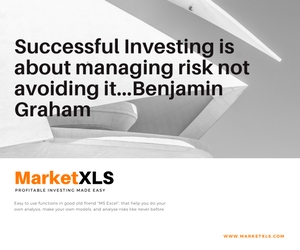The business of rare diseases can be feast or famine. The right molecule, for the right disease, at the right price, can be a blessing for desperate patients and a Bonanza for investors. However the field is fraught with challenges; rare diseases are hard to treat, unexpected competitors can emerge; high drug prices can be unseemly. A lot can go wrong on our way to Shangri-La.
Biotech Analyst Lee Rivers has sorted through the coals to find a gem in the world of rare diseases….
Business Model
Alexion specializes in medications for rare, chronic diseases. Its primary revenue generators are Soliris, Strensiq, Ultomiris, and Kanuma. Soliris makes up approximately 70% of Alexion’s revenue. Soliris treats rare blood disorders paroxysmal nocturnal hemoglobinuria (PNH) and hemolytic-uremic syndrome (HUS). Both of these disorders reduce red blood cells and can cause pain, fatigue, and blood clots. HUS also frequently leads to kidney complications. Soliris treatments are necessary biweekly. By focusing on treatments for rare diseases, Alexion experiences relatively little competition, allowing it to maintain pricing power in a natural monopoly. Soliris treatments cost about $500,000.
Alexion also produces Strensiq, which treats a rare disorder known as hypophosphatasia. Hypophosphatasia prevents the body from processing calcium and phosphorus, affecting approximately 1 in 100,000 individuals. Alexion’s next medication, Kanuma, treats lysosomal acid lipase (LAP) deficiency, which limits the body’s ability to break down fats. LAP deficiency affects nearly 1 in 40,000 people. Lastly, Alexion produces Ultomiris, which is the next-generation treatment for PNH, HUS, and other diseases.
Alexion’s patent exclusivity for Soliris is uncertain, with a major patent possibly expiring in 2021. Consequently, Ultomiris is meant to replace Soliris, as it requires treatment every eight weeks instead of two, and is cheaper than Soliris. Alexion is in the process of transitioning its Soliris patients to Ultomiris and is already ahead of schedule in that regard.
Competition
As previously mentioned, Alexion benefits from limited competition as a result of its medications’ focus on rare diseases. However, Apellis Pharmaceuticals is one firm that is attempting to compete in this space. Apellis has produced a drug called Pegcetacoplan, which edged Soliris in a direct comparison trial. Apellis expects to receive results for its trials in the second half of 2020, making regulatory approval possible in 2021 or 2022 at the earliest. Nevertheless, Alexion has expected competition with Soliris, since the patent is near expiration. Thus, Alexion has been transitioning Soliris patients to Ultomiris proactively. It expects most of Soliris’s patients to transition to Ultomiris by the time pegcetacoplan becomes available, especially since Ultomiris has a couple of enhancements relative to Soliris.
Financials
In Q4 of 2018, Alexion reported revenue of $1.1 billion versus $1.4 billion in Q4 2019, a 23% increase. Revenue for 2019 increased to $5 billion from $4.1 billion the year prior, a 21% increase. Net income experienced even greater growth over the same periods. Q4 net income was -$45 million in 2018 and $899 million in 2019. Total net income increased from $77.6 million to $2.4 billion in 2019. This profitability is not new for Alexion, as net income has been significantly increasing since 2008, with some minor fluctuations in the trend. Alexion’s net income in 2008 was $33 million and increased to $399 million and $443 million in 2016 and 2017, respectively, before briefly declining to $78 million in 2018. The decline in 2018 was merely the result of an expense associated with the purchasing of in-process research and development assets that had no alternative uses at the time of the purchase, according to Alexion’s 2018 annual report.
Moreover, Alexion’s 2019 price-to-sales ratio (P/S) is 4.3, while the industry average is 7.5 The company’s price-to-earnings ratio (P/E) is 9.75, despite an average of 30 for a profitable biotechnology firm. Alexion also has traded at P/E ratios ranging from 15 to 290 over the period beginning 2010 to 2018, with an average P/E of about 40. These price ratios combined with the historical average of Alexion portray that it appears to be undervalued by the market relative to the average biotechnology firm.
Portola Pharmaceuticals Acquisition
Alexion has reached an agreement to acquire Portola Pharmaceuticals for $1.4 billion. Portola produces Andexxa, (marketed as Ondexxa in Europe) which stops life-threatening bleeding in patients that have received anti-coagulates (particularly the Factor Xa inhibitor). Of the patients that use Factor Xa inhibitors, approximately 5% of patients will experience serious bleeds that can only be staunched by Andexxa (or Ondexxa). Alexion sees opportunities for sales expansion of Andexxa, in addition to the present growth of the Factor Xa inhibitor market, which is expected to grow at 12.5% per annum over the next 10 years.
Despite Soliris and other Alexion products’ focus on chronic, rare diseases, Alexion believes its strong hospital networks and pervious commercial excellence with market access will allow it to enhance and broaden the number of patients that can be helped by Andexxa, despite its one-time, emergency usage that contrasts Soliris. By leveraging its established market access, commercial, and operations organizations Alexion wants to increase the scope of Andexxa. Furthermore, Alexion CFO Aradhana Sarin, M.D. told analysts the purchase of Portola is meant to diversify Alexion’s business strategy since Soliris’s future exclusivity is in question.
Future Possibilities
Alexion is also expanding the uses for Soliris and Ultomiris. Both treatments are in multiple phase 3 trials, including additional trials for PNH and HUS, as well as neuromyelitis optica spectrum disorder (NMOSD), in which the immune system targets optic nerves in the central nervous system, as well as generalized myasthenia gravis (gMG), a life-threatening neuromuscular disease. NMOSD affects 10 in 100,000 people, while gMG affects 40 in 100,000 people. Soliris also is in pre-clinical trials to determine its effectiveness in aiding with coronavirus-induced pneumonia.
Moreover, there has been growing evidence that the cause for many COVID-19 related deaths is the emergence of blood clots that can be treated using anti-coagulates. Portola’s Andexxa is the only known treatment for the side-effects Factor Xa Inhibitor anti-coagulates. Of the patients that utilize Factor Xa inhibitors, the anti-coagulate previously mentioned that is growing in popularity, 5% will experience side-effects that will require Andexxa for treatment.
Taking a look at the possible revenue that Alexion could be able to receive from Andexxa, we assume that the drug would only be available to the OECD nations, Russia, and China because of its cost, making it available to a total of about 3 billion people. Assuming that the global COVID-19 hospitalization rate in one quarter is the same as that of the United States for simplicity (0.4%), there will be approximately 9 million coronavirus related hospitalizations in one quarter. Anti-coagulates will then be given to each as a preventative measure, with about 32.6% (and growing) of those anti-coagulates being Factor Xa inhibitors, thus giving a total of 2.93 million Factor Xa inhibitor doses, as a conservative estimate. Of these 2.93 million doses, 4%, or about 117,360 patients will have reactions in which Andexxa and Ondexxa are the only medications for treatment. Each dosage then costs around $11,000, resulting in a demand of $1 billion over the quarter, and with a 48% operating margin, Alexion stands to gain about $480 million in profits before taxes.
Using Alexion and Portola’s combined shares outstanding of 303 million, this would add about $1.60 to Alexion’s quarterly earnings per share (EPS), which is already currently around $2.50. Annual EPS would then increase to around $16.40, resulting in a possible share price above $150 if the P/E ratio remains just below 10, a gain of more than 30%. If the P/E ratio were to return to previous averages, however, a share price of $500 or greater would not be unreasonable. Despite being a strategic acquisition for diversification, Portola’s acquisition could lead to explosive growth for Alexion, well beyond investors’ largely mediocre future expectations.






More Stories
MERCK + MODERNA: A GOOD MARRIAGE FOR BAD TIMES?
5 WAYS THAT BIOTECH CAN ATTACK ALZHEIMER’S
3 PROMISING BIOTECHS FOR THE YEAR 2025